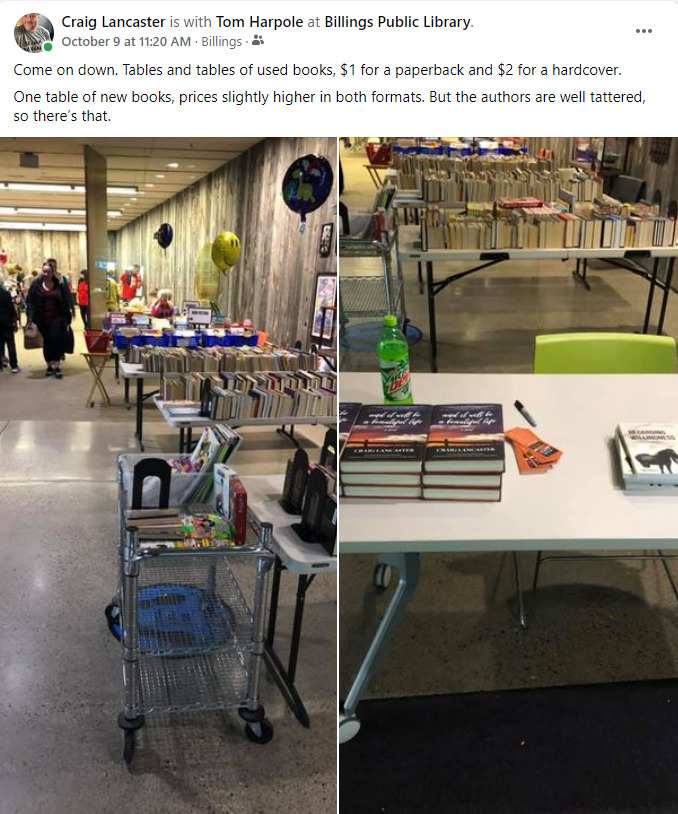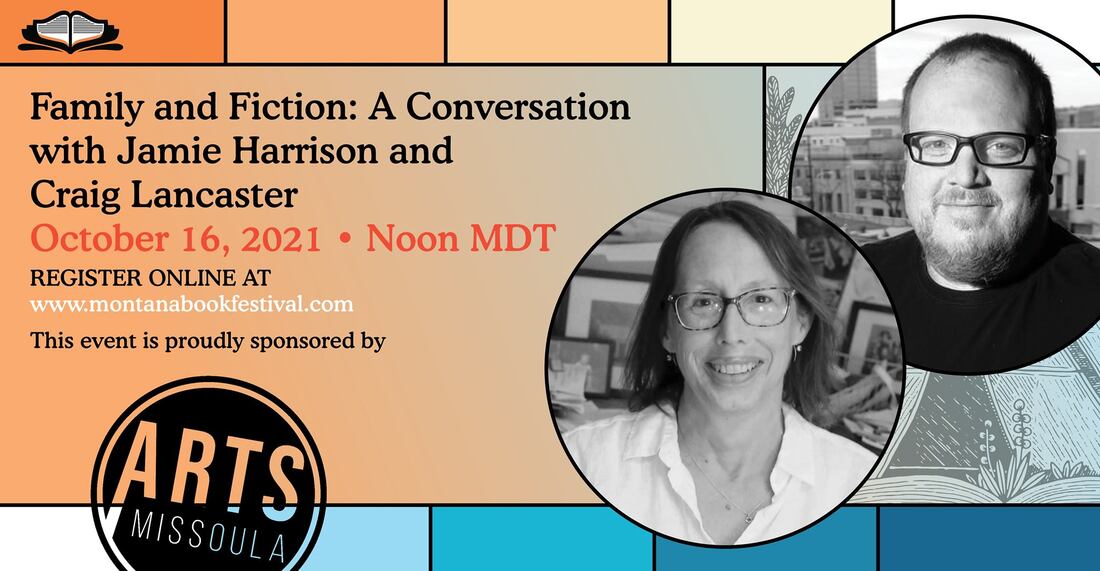|
10/13/2021 1 Comment Social ... and Socially DestructiveFirst thing: I'd be gratified if you'd go to this link, where my wife, Elisa Lorello, keeps her newsletter. She's written eloquently and emotionally this week about her pullback from social media: why she did it in the first place, ways in which she has come back, and why she'll never return to what her presence used to be. She gets at a lot of the things I've wrestled with, and she's been far stronger than I have as far as making some of her resolutions stick. If you like what you read there, you might consider going to her website and signing up for the weekly (sort of, kind of) dispatch. A little Elisa in your in-box is a day brightener, and we all need those. The truth is, we've been grappling with social media and its impacts on us, on how we congregate and communion and deal with each other, for as long as we've been becoming friends with Tom and booking staterooms on the S.S. Zuckerberg. It's just that the more pernicious aspects of an online life have been slower to come to us, and by the time they do, we're already addicted to the cat pictures and the easy reconnection with high school friends and the ready microphone for whatever is on our minds. (On mine, mostly: breakfast.) Every time I'm about ready to declare social media, on the whole, a net negative, I can feel a "yeah, but" bubbling to the surface. Over the weekend, I shared a table with Tom Harpole (author of Regarding Willingness, a great book you should read posthaste) at a library book sale, and we had a humdinger of a time building a genuine human rapport out of a friendship that had, to that point, been nurtured entirely online. So, if I'm ready to bag social media—and I am, baby, I am—am I also ready to foreclose the possibility of future Harpolian friendships? Um ... What about the genuine, deep love I've come to feel for people from my hometown I didn't know that well the first time around (I went to a big-block-store of a high school, so it was mathematically impossible to do it any other way)? What about the book club in Virginia who'd all be my besties if we lived closer? What about a dozen other examples I could rattle off without even contemplating it? I think the greatest disappointment of social media, for me, is that I thought (naively) it would be a tool of greater connection and empathy, and in its worst iterations, it's been precisely the opposite. I cringe when I look back on something like this interview, in which I extolled the virtues. They're so much harder to see now. And look, I don't think the problem is the technology, per se. We've leveraged new tools in our communication since human history began, from grunts to cave wall drawings in ochre, from plumes to pencils to printing presses to pixels, from phones that share party lines to phones with long-distance tolls to phones that aren't even used, primarily, as talking devices. But connection was the point, right? And now, in ugly and pervasive ways, the point is division. Harp said something while we were together, a grand occasion that I think will leave us demanding more like it to keep oxygen flowing in the friendship, and I haven't been able to shake it since: "The world is getting to a place where an empathetic person will find it impossible to live here." (I hope that's near enough to a direct quote. I wasn't taking notes, just reveling in the fellowship.) I think that's it, in large measure. Empathy is lifeblood for me. I can't imagine getting through my days without it. I can't imagine living in a way that I don't strive for it. I can't imagine wanting to be here without it. I'm going to try to live where kindness lives, to plant it where I am and where I'm headed. I'll fail sometimes, of course. That's part of the human bargain. But that ideal has to be the north star, or what are we doing here? (And, yeah, I get the irony of having pounded this out on a website, the link to which I'll distribute on Facebook and Twitter. We're hardwired for hypocrisy.* All of us.) (* — Credit to the great Barry Eisler for highlighting the Niebuhr passage.) Quick programming noteNovelist Jamie Harrison and I are doing this online conversation, hosted by the Montana Book Festival, about fiction and families. I think it's going to be a lot of fun with some interesting insights, and if you have some time Saturday (Oct. 16), I'd be well pleased if you joined us. The event is free, but you have to register here to get a spot.
1 Comment
Leslie Clines
10/14/2021 05:01:10 am
Believe it or not I have been considering ditching facebook for the exact same reason as the comment by your friend Harp. I have gone through the rage, to the bewilderment, to the apathy of feelings toward the ignorance shown on fb. I just don't care anymore...and I don't like feeling this way but it seems to be my best self preservation response.
Reply
Your comment will be posted after it is approved.
Leave a Reply. |
About CraigCraig Lancaster is an author, an editor, a publication designer, a layabout, a largely frustrated Dallas Mavericks fan, an eater of breakfast, a dreamer of dreams, a husband, a brother, a son, an uncle. And most of all, a man who values a T-shirt. Archives
July 2024
By categoryAll 600 Hours Of Edward And It Will Be A Beautiful Life Awards Books Bookstores Community Connection Craft Craig Reads The Classics Dreaming Northward Education Edward Adrift Family Geography History Libraries Memory Montana NaNoWriMo Northward Dreams People Plays Poetry Public Policy Q&A Social Media Sports Stage Texas The Fallow Season Of Hugo Hunter The Summer Son This Is What I Want Time Travel Work Writers Writing Archives
July 2024
|


 RSS Feed
RSS Feed